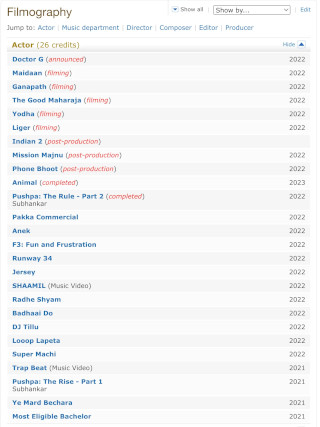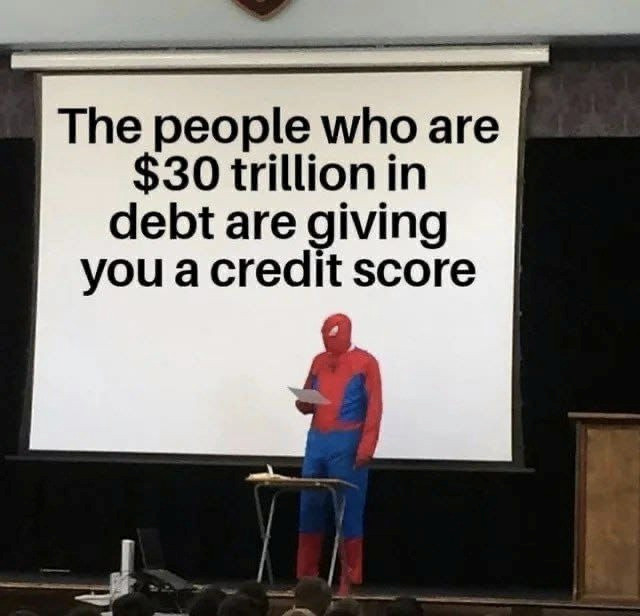Good morning,
Sometimes, we know something is wrong and yet we continue to do it because there are too many interconnections, and not doing that would be painful in the short run. Most people are not immune to this, and it has had bad consequences.
In his book, The Man Who Knew: The Life and Times of Alan Greenspan, Sebastian Mallaby says this phenomenon was behind the bubbles that developed under the watch of the long-time US Fed chairman.
He writes:
“Why did a man as historically conscious as Greenspan fail to do more to fight bubbles? A clue to the answer can be found in the 1960s, when another school of economists found itself in an analogous position. At that time, the fathers of modern portfolio theory confronted a highly inconvenient truth: contrary to their efficient-market assumptions, price changes in asset markets do not follow the ‘normal distribution’ depicted by a bell curve; rather, very large price moves occur far more frequently than the thin tails of the bell curve anticipate. At first the efficient marketers responded open-mindedly to this objection, acknowledging that its main proponent, the maverick mathematician Benoit Mandelbrot, was right. But then they swept Mandelbrot’s protests under the carpet because his message was too difficult to live with. Deprived of their bell-curve assumption, the efficient marketers’ mathematical techniques would cease to work. ‘Mandelbrot, like Prime Minister Churchill before him, promises us not utopia but blood, sweat, toil and tears,’ Paul Cootner, an efficient marketer, objected. ‘If he is right, almost all of our statistical tools are obsolete—least squares, spectral analysis, workable maximum-likelihood solutions, all our established sample theory, closed distribution functions. Almost without exception, past econometric work is meaningless.’
“If he had tried to make bubbles and leverage a central part of his mission, the Fed’s mandate from Congress, requiring it to focus on inflation and employment, would have needed revision. Likewise, the expectations of politicians and the public, which created the enabling environment around the Fed, would have required reshaping. For a man who was averse to picking unnecessary fights, it was all too daunting.”
Have a great day!
Hack to fame
One of the most compelling stories we have read in recent times is that of a scam (if you want to call it that) of how people game Google’s algorithms to get famous. It appears in a newsletter on Substack.
The writer, who goes by the pseudonym Pea Bee, describes how he stumbled across someone called Shubhankar Bagchi whose name he doesn’t recognise. “So who is this guy? I had not heard of him before and he is named in the ‘Top cast’ category for this movie, alongside Ranbir Kapoor.
“I checked his IMDb page and this is what his bio and filmography look like.

“According to this, he has acting credits in some big-budget productions. I am beginning to suspect that this could be a case of IMDb vandalism. IMDb allows anyone to add and edit pages. They don’t allow you to see the edit history of a page though like Wikipedia and evidently, the edits are not reviewed effectively either.”
When Pea Bee looked up Google for Shubhankar Bagchi, turns out, the man has a knowledge panel to his name and links to his page that claim he is a musician. “I looked at his Youtube and other social media profiles and he doesn’t have a lot of followers or any music content on there. I shazamed a couple of his songs and they’re just copies of existing random music mashed together with some audio editing tool like Audacity. Possibly to avoid getting copyright notices. Hmm.
“I think I am now beginning to get a clearer picture of what's going on here. He set up a profile on a bunch of different music streaming platforms. Uploaded remixed mash-up of existing songs using some audio editing software. Published biographies and profiles about himself on sites that do not verify submissions. Set up an IMDb page with fake credits. All this to trick google into believing he is a person of eminence.”
Some more looking up later, Pea Bee figured this is a hustle that is not unique to Bagchi, but is practiced across India and the subcontinent including Pakistan and Bangladesh by young people desperate to get famous.
This is one heck of a hustle and makes for a great read.
Dig deeper
Regulation? What regulation?
Last month, a draft bill was introduced by the Union Ministry for Health & Family Welfare to replace the Drugs and Cosmetics Act 1940. The ramifications of that slipped us. But on reading a teardown of the proposed bill by Dinesh Thakur and Prashant Reddy T in The Indian Express, we now feel sufficiently alarmed.
“The new approach proposed by the government can be described as a chalta hai approach to regulation, aimed at accommodating the pharmaceutical industry’s demand to ‘decriminalise’ some of the offences under the existing law. Section 56(e) of the new bill proposes lowering punishments for drugs that have been declared Not of Standard Quality (NSQ) due to any of the 43 defects listed in the fourth schedule of the bill.
“In our opinion, there is no valid science guiding the inclusion of 43 defects in the fourth schedule. Take for example the amount of active ingredient in a drug. The IP allows a drug to be declared of standard quality as long as the amount of active ingredient is between 90 per cent to 110 per cent of that advertised on the label. However, entry 4 of the fourth schedule now states that as long as the drug contains at least 70 per cent of the advertised amount, the manufacturer will be subject to lower punishments. This makes no sense because any drug that has only 70 per cent of the active ingredient can result in adverse treatment outcomes. For example, if in a strip of 10 antibiotic tablets each tablet has only 70 mg of active ingredient instead of the 100 mg of active ingredient as listed on the label, at the end of a 10-day course of treatment, the patient would have received only 700 mg of the antibiotic instead of the 1,000 mg that the doctor prescribed. Not only would the patient not recover completely from the infection, but chances are she is now a carrier of antibiotic-resistant bacteria.”
Clearly, this calls for a public debate!
Dig deeper
New drugs bill is a prescription for disaster
High debt matters

(Via WhatsApp)
Warm regards,
Team Founding Fuel


